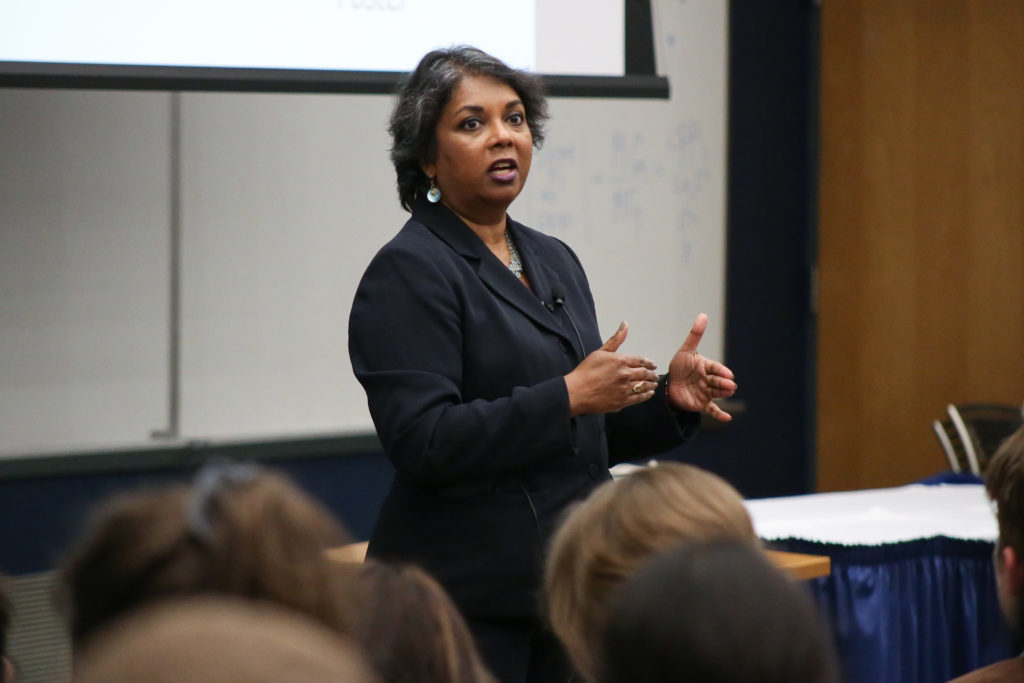The economics department is hiring new faculty to reduce the size of its large lecture courses.
Some of the 30 full-time faculty in the department have asked the dean of the Columbian College of Arts and Sciences to hire more professors to ease the pressure of teaching packed introductory courses. Professors said new hires will enable smaller lecture class sizes and allow senior faculty more time to teach advanced courses.
CCAS Dean Ben Vinson said “several” economics full-time hires have been approved in each of the last two academic years but did not say exactly how many. He said enrollment size, the number of courses and the number of economics majors and minors are all factors in determining the need for additional faculty.
“Looking ahead, we are committed to continuing to work with the department’s chair and faculty to address future needs,” he said in an email.
Vinson added that all CCAS departments and programs are “continually assessed to ensure we are offering the best possible learning experience for our students.”
Irene Foster, an associate professor of economics, said full-time faculty are needed to teach introductory courses, as adjuncts often have other jobs and cannot be “100 percent committed.” Hiring for adjunct faculty has outpaced the growth of tenure-track positions across the University in recent years.
“The University has allowed us to hire some faculty that will be dedicated to teaching just those introductory classes, so that’s a great thing,” she said.
There are currently no open positions listed for the economics department, according to GW’s job database.
As demand for economics courses has risen sharply over the last few years, faculty have lamented the large number of adjuncts in the department, and teaching assistants have complained of a heavy and unfair workload. Economics is a department known for its large introductory lectures, as nearly 2,800 international affairs, economics or finance majors are required to take both Principles of Economics I and Principles of Economics II.
Those courses often have long waitlists because the department can’t offer enough sessions to satisfy demand, faculty said.
In 2017, there were 248 undergraduate economics majors – a slight drop from previous years, according to the Office of Institutional Research and Planning.
More hires will enable professors to have space in their schedules to teach more advanced courses, Foster said.
“I think students would like to take courses like Behavioral Economics, but with the faculty we have right now, we’re barely able to offer the courses we’re offering now,” she said.
Foster said offering a greater variety of courses will keep students engaged in economics past the introductory level by providing them with more options and smaller, more discussion-based sessions.
Anthony Yezer, a professor of economics, said not having enough full-time faculty means relying on adjuncts who do not have “uniform standards” in their teaching.
“Our problem in economics is that we not only teach freshmen in large sections, but we also teach half of our upper level economics classes using adjunct faculty whose teaching is not supervised or coordinated with the rest of the instruction in the department,” he said.
With research and graduate student commitments, he said currently there are about 30 economics majors – not including students in other departments – for each full-time faculty member in the department.
Yezer said he would rather have large classes taught by new full-time faculty than rely on adjunct faculty to teach most upper level classes.
“That is the reality of our situation,” he said. “I think that the large lecture solution is preferable to having so much teaching by so many adjunct faculty.”





